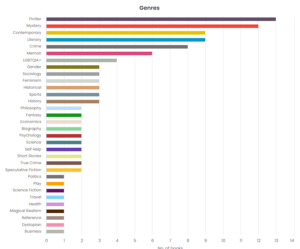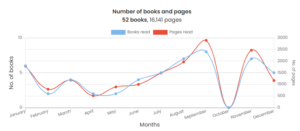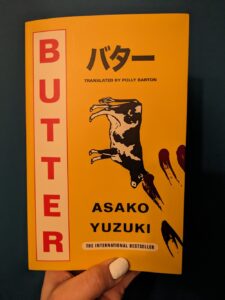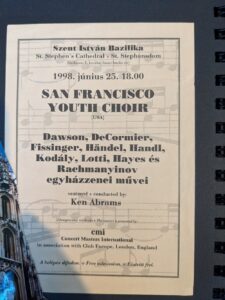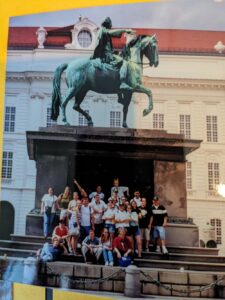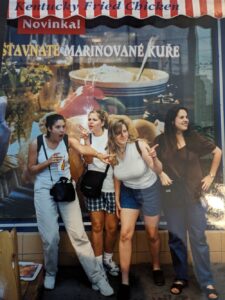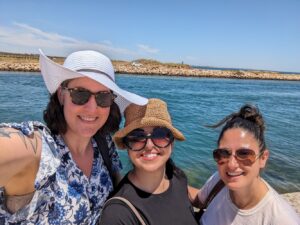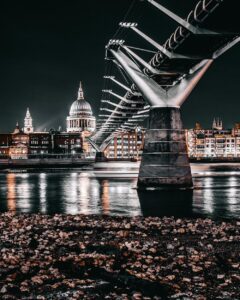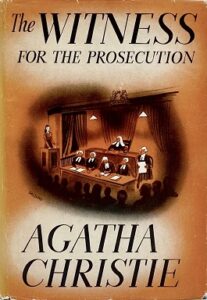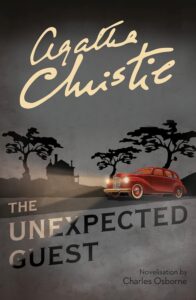You know how a song or scent can take you back in time? You catch a whiff of an ex’s cologne and suddenly you remember how poorly you handled that break-up. Or you hear ‘Wannabe’ by the Spice Girls and suddenly you’re in the car with your friend Kelly, right after the welcome back dance to your senior year of high school, having just backed into your friend’s dad’s car? (No? Just me?) For me, I’ve also noticed that occasionally, a way I lay in bed will take me back somewhere. Not in that dramatic sit-up-straight from a dream ‘where am I’ kind of thing. Just, every once in awhile, I’ll be laying in bed, having just woken up, and be somewhere else. Usually a vacation. This morning it happened again, and for maybe five seconds, I was in the twin bed in the condo my parents used to have in Lake Tahoe, Nevada.
My whole life, until two years ago, my parents had this condo in Lake Tahoe. My mom, aunt, and grandmother went in on it together, but I only remember my immediate family using it. It has fixtures from the late 70s, a red Formica counter top in the kitchen, smoke damage from renters who didn’t open the flue when they used the fire place. I think it came furnished — if I recall correctly, it was the model for the line of 30 condos in the development, so my parents just kept the furniture, which includes this piece of ‘art’ over the green couch that looks like fireworks but I think are actually flowers? No clue. It’s three stories, with a tiny basement off the garage where we used to play dangerous games of marco polo, the kitchen / living area and a bathroom (with carpet – yikes) and laundry area, then three bedrooms upstairs. ‘My’ room had twin beds, my sister’s had a double bed (and at some point gained a GIANT R.E.M. poster that was there right until my folks sold the place), and a bathroom we shared, plus my parents’ room. The bathroom my sister and I share had a door connecting straight to her room, so she could lock the bathroom door, lock her door, and keep me out. In fact, we had one bruiser of a fight that led to that lock breaking.
The condo was pretty close to the middle of town, and about a mile from the beach. It was not anything like the giant mansions off the water – the walls were thin enough that you could hear anything going on in the other units. I’m pretty sure in the nearly 40 years that my parents owned it, it barely went up in value. It was not an investment, and it’s not some glamorous vacation spot. But man, were we lucky to have it growing up. We had a built-in place that we could go to whenever we wanted. It was a five hour drive away when I was younger (and needed to stop at least three times along the way), but now it maybe 3 and a half to four hours from the home I grew up in, where my parents still live. I’ve made that drive dozens of times in my life, usually in the summer, but also in the winter (I even removed the chains from the mini-van once), through the snow, thunderstorms. But no matter the time of year, there was always this moment, when we were making the drive from Truckee into King’s Beach, where we’d summit one of the mountains and the lake would come into view. Always this deep, deep blue.
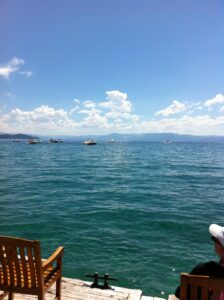
(And no joke, that lake IS deep. Like, in the middle, something like 1700 feet deep. It’s bananas. There are petrified forests down there. It’s an alpine lake, so it’s really cold, especially in the bottom. Every so often, a body will surface that has died hundreds of years ago.)
All through elementary school, the day we go out of classes for the year, we would head up to Lake Tahoe for a week. I have one sister who I generally got along with (and who is a close friend now), four years older than me. We’d sit in the back of the car, sort of doing our own thing, I think. I don’t remember car games really being something, though I have a vague recollection of a travel Guess Who? game, so maybe we did? There was a rest stop near the start of the mountains, and there was also a McDonald’s in Auburn where we would get some food (in later years, we switched to In ‘N’ Out.)
After making our way through Truckee, we’d pull into King’s Beach, knowing we were only about ten minutes from Incline Village, where the condo was. We’d perk up from whatever naps we’d taken, turn off the music (inevitably the Dirty Dancing soundtrack or some Beatles or Rolling Stones tape) and drive along the water until we pulled into the spot in front of the condo. My dad would unlock the front door (in later years, using the silly golf bag key chain I got for him one father’s day, which had a functioning zipper that he kept a $20 in), and we’d race inside. That first day was for unpacking, then making the trip up to Raley’s.
Raley’s was the giant supermarket in town. It felt kind of like a superstore before I knew what that even was. We’d split up, getting everything we’d need for the week. Sandwich fixings, snacks, root beer for floats (we didn’t have soda usually, but got it in Tahoe), ice cream, sugary cereals (again, a vacation treat). We’d pile the groceries into the car, unpack them at home, and then … go to the Hacienda.
Oh god, the Hacienda. It closed a couple of years back, and is now some sort of brew pub, which, fine. But the Hacienda was the shit. The salsa was amazing, the chips were perfect, their virgin Strawberry and Raspberry daiquiris were amazing. When I was eating meat, I’d get their albondigas soup, and a taco; later it was all about the cheese enchiladas. My parents would get margaritas, and meeting up with my parents’ good friends, Karen and John McAdams, was usually on the list that first night. After dinner, we’d order fried ice cream, the likes of which I’ve never found since. It was perfection, served in this giant sugary fried tortilla. Even though it was maybe a ten minute walk from our house, it wasn’t until I was in my 20s that I think we would walk there for dinner.
Shit, now I’m hungry. Hold on.
As a kid, our days were pretty much the same. Wake up fairly early. Make lunch – tuna sandwiches, some snacks – and always, always, a thermos of either crystal light lemonade or iced tea. Pour on the sunblock. We’d drive down to the beach, with the rafts (including one with oars), and stake our claim. Almost all the way to the west side of the beach, where there was shade from the giant evergreen trees, and picnic table where my parents and the McAdams would play cards in the afternoon. As an adult, I’m not the biggest fan of beach vacations, but as a kid, I loved it. Racing to the water, trying not to burn the soles of my feet. Jumping in even though it was FREEZING. Scoping out the clear water, making sure there was nothing I was going to step on (I have a fear of things in the water, but it didn’t keep me from swimming, because that beach had pure sand and was so clear). We’d take out one of the rafts, or get in the blow-up boat with my dad, and go out the buoys that marked the edge of the swimming area.
In some years, as the drought set in and I got taller, I could almost walk all the way out to the buoys. That was weird. My dad and John were both over 6’6” and would sometimes try to walk the perimeter of the swimming area. Usually they’d be underwater in one place, but in particularly bad years, they could make it.
We didn’t play a ton of games at the beach – at one point a velcro ball and paddles appeared, but that was about it. After lunch, sometimes I’d lay on my towel for a nap, underneath the upturned blow-up boat. We also usually got a dollar or two to visit the beach snack bar and get laffy taffy, or red rope, or sometimes warheads.
Tired from the sun, we’d eventually pack up, go home, and shower. Dinner, followed by my parents going to the Hyatt to gamble. That was their hobby – and still is. They wouldn’t spend lots of money or anything, but it was fun for them. When we were younger, we’d have a babysitter, but by the time my sister was old enough to look after me, the evening would just be us, hanging out.
After that week, we’d come back home for the summer, but then return for three weeks in August (my dad used to have a LOT of vacation time). More of the same, although we didn’t go to the beach EVERY day. Sometimes we went to a different beach that had a pool. A few times we went to the California side to raft down the Truckee river.
We’d also spend the occasional day in King’s Beach, at Mr. Boburg’s mini golf. There’s a theory that the voice that tells you you didn’t get a hole in one (and thus a free game) on the last hole is my mother’s. Seriously, it sounds JUST like her. We played hundreds of rounds of mini golf there, followed by take-out from Kentucky Friend Chicken next door.
As we got older, we could invite friends up for a visit. Their parents would meet us half way in Auburn so we didn’t have to drive all the way back down. Jen was the one who usually came up with me, from when were pretty small through high school. One summer we watched Wayne’s World every day for a week. We went to the Hacienda ourselves and flirted with the bus boys. When I made some friends up there, all of us would hang out together.
At one point I decided that I wanted to work when we were there, so for three summers, my mom and I basically lived in Tahoe for two months, with my dad and sister (who by then was in college) coming to visit. For four summers (the first one was only a couple of weeks) I worked in the beach snack bar. 9:30-5:30 every day, with free lunch and as much soda as we wanted (it’s why I like Diet Pepsi more than diet Coke). Charlotte worked the grill, and she’d been there for a long time. I want to say she was in her 60s, but I was a teenager, so she was probably younger than that. Each evening I came home smelling like fried food – it was awhile before I ate mozzarella sticks again.
My second summer working there I met a VERY cute lifeguard. It feels very Saved by the Bell: Summer edition, but we did end up dating for a bit the next year. As much as a couple of 16-year-olds can date. We’d go to the bowling ally in town and bowl or play air hockey, or sneak into the beach and hang out. I became friends with his good friend, and even after the lifeguard and I stopped hanging out, I stayed friends with that guy. Like, for years. So weird.
My last summer there I worked at the snack bar during the day and then a couple of nights a week I hostessed and bussed tables at a local restaurant. I got people their drinks, made their salads, brought them bread. And left each night with a bunch of cash. Two things stand out to me: The rolls were heated in this sort of drawer oven, that we just reached into and grabbed, and the butter was in this giant tub that we kept in a sink surrounded by ice, and we’d use an ice cream scoop to get it out.
We did also visit in the winter sometimes, though I was the only one who engaged in winter sports regularly. When we were little, we’d go sledding. But actually in winters if we went to Tahoe we’d stay at the local hotel. I think it was because it was less of a pain in the ass to not have to shovel snow and such. I skied every winter from 5th grade until early high school, but then stopped. It was a lot and I didn’t love it.
Once I went to college I didn’t make it up to visit much anymore. I think we spent one Christmas and few New Year’s Eve’s up there, and I’ve gone back for the 4th of July, which is as small town America as it gets – pancake breakfast fundraiser at the fire station, parade, fireworks over the lake. I love that time. I took my partner up, but only once.
And now, as I’m living 6,000 miles away, I think about how fucking great those times were. How lucky I was, having this special place, with these consistent, lovely memories. It’s bananas how great it was.
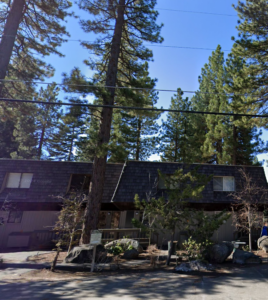
(Courtesy of Google maps, our condo was the second window from the right, with the entrance right behand that giant rock in the middle.)
